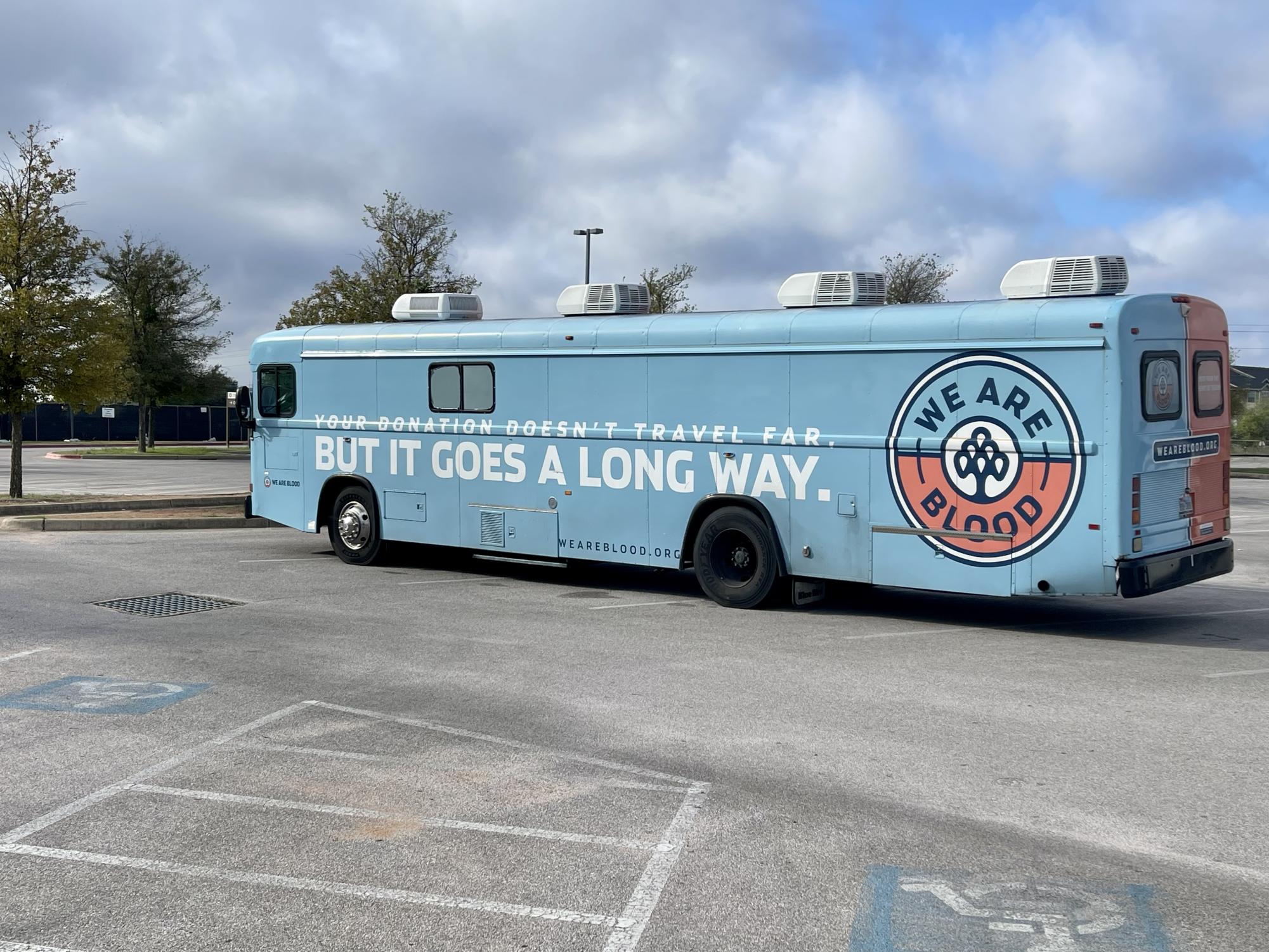To motivate more young people to donate, We Are Blood also offers high school graduates a blood donation cord if a student donates blood three or more times throughout their high school career.
Blood donations can be used for life-saving blood transfusions, helping hospitals treat conditions like sickle cell disease, cancer, childbirth, anemia and car accidents. Aside from red blood cells, one can also donate platelets which are smaller cells that prevent clots within one’s blood vessels.
“Especially with the growth in Central Texas, we’ve had new hospitals opening and continuing to open,” We Are Blood’s Director of Technical Services Valerie Wilhite said. “Of course, with the population, there’s more traumas, car accidents, [and] all that stuff, so we are just constantly in need of more blood and more platelets.”
While donating red blood cells takes only up to fifteen minutes, donating platelets can take nearly two hours. However, a person’s body has to wait a period before being eligible to donate blood again. Healthy participants will have to wait upwards of two months before donating red blood cells, but one can donate platelets twice a week.
“Platelets are tough because a lot of people don’t want to come and spend two hours to donate,” Wilhite said. “People coming in for chemo at the different hospitals get platelets, and it’s hard for us to keep up with [it]. There are times when we do have to import from other blood centers because we can’t meet the demand. We do the very best we can, but we always need more donors because we just don’t know from day to day what might happen in Central Texas.”
Before someone can donate blood, they must undergo a series of screenings meant to detect health concerns such as abnormal hemoglobin levels, sicknesses, and blood diseases. By following strict criteria, medical centers can ensure that patients will receive donations from a healthy and reliable source.
“I’ve had to give blood for blood tests,” senior Nishanth Perdala said. “At first, I was a bit nervous because it was my first time donating blood, but once I actually got through the procedures it was not as bad as I thought [it would be].”
Repeat donors can even earn the title of being a “Galloneer,” a person who has donated over a gallon of blood.
“We do have a lot of repeat donors that come in constantly,” Wilhite said. “We’ve had people [at the facility] who have been donating for 10- 20 years, so there’s a lot of really dedicated people who know that the blood supply needs to be replenished continually.”
According to the Red Cross, school mobile drives account for nearly 20% of all blood donations. As a result, they have become an essential way for organizations like We Are Blood to spread the word about the donation process. On Nov. 4, We Are Blood hosted a mobile popup on campus for students 17 years and older to consider donating blood.
“I think [students should donate],” Perdala said. “ It’ll help people and give some humanity to people and make them feel like a good person. It’s important [because] we can save people’s lives if they’re in accidents and they need blood. I feel like donating blood is one of the most helpful and easy ways to [assist] others.”
According to the American Red Cross, 6.8 million people donate blood each year in the United States. However, the current blood supply is not meeting the hospitals’ demand, as the national blood supply has dropped by 25% since the beginning of August.
“Imagine if it was your family member that was in [a] trauma and needed blood,” Wilhite said. “You would hope that there would be blood out there that somebody had donated to save their life. It’s almost like a pay-it-forward kind of thing. You want to save every patient and you never know one day if that patient is going to be you or a family member.”



